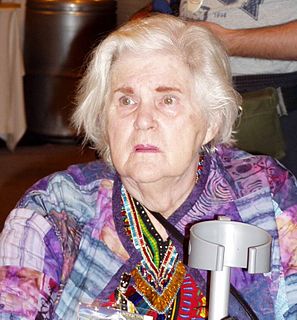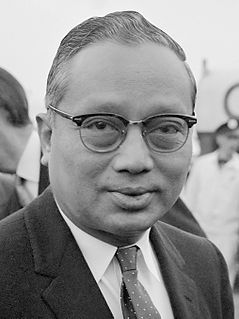Top 1200 Compassion Quotes & Sayings - Page 4
Explore popular Compassion quotes.
Last updated on November 5, 2024.
One of God's central qualities is compassion, a word that in Hebrew is related to the word for "womb." Not only is compassion a female image suggesting source of life and nourishment but it also has a feeling dimension: God as compassionate Spirit feels for us as a mother feels for the children of her womb. Spirit feels the suffering of the world and participates in it. . . .
Education is the proper way to promote compassion and tolerance in society. Compassion and peace of mind bring a sense of confidence that reduce stress and anxiety, whereas anger and hatred come from frustration and undermine our sense of trust. Because of ignorance, many of our problems are our own creation. Education, however, is the instrument that increases our ability to employ our own intelligence.
For an act to be moral the intention must be based on compassion, not duty. We do something because we want to do it, because we feel we have to do it, not because we ought to do it. And even if our efforts fail - or we never even get to implement them - we are still moral because our motivation was based on compassion.
Blanket compassion will shift the distribution decisively towards the manipulative end of the spectrum, and may paradoxically decrease the compassion with which the genuinely despairing are treated: for they are apt to get lost in the great mass of pseudo-distress and manipulation, and often their conduct draws less attention precisely because it is less attention-seeking.
Why is compassion not part of our established curriculum, an inherent part of our education? Compassion, awe, wonder, curiosity, exaltation, humility - these are the very foundation of any real civilization, no longer the prerogatives, the preserves of any one church, but belonging to everyone, every child in every home, in every school.
In today's world, people experience two types of poverty: the poverty caused by lack of food, clothing and shelter, and the poverty caused by lack of love and compassion. Of these two, the second type needs to be considered first because if we have love and compassion in our hearts, then we will wholeheartedly serve those who suffer from lack of food, clothing and shelter.
We can reject everything else: religion, ideology, all received wisdom. But we cannot escape the necessity of love and compassion. This, then, is my true religion, my simple faith. In this sense, there is no need for temple or church, for mosque or synagogue, no need for complicated philosophy, doctrine, or dogma. Our own heart, our own mind, is the temple. The doctrine is compassion. Love for others and respect for their rights and dignity, no matter who or what they are: ultimately these are all we need.
As Gandhi wisely points out, even as we serve others we are working on ourselves; every act, every word, every gesture of genuine compassion naturally nourishes our own hearts as well. It is not a question of who is healed first. When we attend to ourselves with compassion and mercy, more healing is made available for others. And when we serve others with an open and generous heart, great healing comes to us.
When we practice generating compassion, we can expect to experience our fear of pain. Compassion practice is daring. It involves learning to relax and allow ourselves to move gently toward what scares us. The trick to doing this is to stay with emotional distress without tightening into aversion, to let fear soften us rather than harden into resistance.
A friend told me of visiting the Dalai Lama in India and asking him for a succinct definition of compassion. She prefaced her question by describing how heart-stricken she'd felt when, earlier that day, she'd seen a man in the street beating a mangy stray dog with a stick. "Compassion," the Dalai Lama told her, "is when you feel as sorry for the man as you do for the dog."
A man of understanding, a man who understands himself and others, always feels compassion. Even if somebody is an enemy you have compassion toward him because a man of understanding can understand the viewpoint of the other also. He knows why the other feels as he feels, he knows why the other is angry, because he knows his own self, and in knowing that, he has known all others.
There is a tendency sometimes within the Shambhala community to make it just about meditating and, so, less about compassion. Shambhala is based upon compassion, but a lot of people come in and say, "I need to get more meditation. I need to do this for me, me, me." That's fine, but the view here is much more societal.
Want of imagination makes things unreal enough to be destroyed. By imagination I mean knowledge and love. I mean compassion. People of power kill children, the old send the young to die, because they have no imagination. They have power. Can you have power and imagination at the same time? Can you kill people you don’t know and have compassion for them at the same time?
Jesus disclosed that God is compassionate. Jesus spoke of God that way: "Be compassionate, as God is compassionate." Compassion is the primary quality of the central figures in two of his most famous parables: the father in the parable of the Prodigal Son and the Good Samaritan. And Jesus himself, as a manifestation of the sacred, is often spoken of as embodying compassion.
How can one be compassionate if you belong to any religion, follow any guru, believe in something, believe in your scriptures, and so on, attached to a conclusion? When you accept your guru, you have come to a conclusion, or when you strongly believe in god or in a saviour, this or that, can there be compassion? You may do social work, help the poor out of pity, out of sympathy, out of charity, but is all that love and compassion?
What I've come to learn is that the world is never saved in grand messianic gestures, but in the simple accumulation of gentle, soft, almost invisible acts of compassion, everyday acts of compassion. In South Africa they have a phrase called ubuntu. Ubuntu comes out of a philosophy that says, the only way for me to be human is for you to reflect my humanity back at me.
Compassion, however, should mean providing a mechanism to escape poverty rather than simply maintaining people in an impoverished state by supplying handouts. By doing this we give them an opportunity to elevate their personal situations, which eventually decreases our need to take care of them and empowers them to be able to exercise compassion toward others.
The wisdom that comes from having experienced heartbreak cannot be bequeathed; it can only be gained through experience. And having truly felt it, we are far more likely to have compassion for others. Anything that takes us close to true compassion takes us closer to what will one day be an experience of even greater joy.
Children, don't waste a single second.
Serve others, above all the poor,
expecting nothing in return.
Just as the person who offers God flowers
is the first to enjoy their fragrance,
the person who offers compassion
is the first to receive its blessing.
Wherever a heart beats
with compassion:
God is there.
Normal people, who grow up with compassion, never amount to anything. They're the ones who end up gluing those little dots on the highway. Or, putting glue on the dots for the guy who glues dots on the highway. Screwed up people, who weren't coddled or raised with compassion, we get stuff done. Sure, we feel a little alone and abandoned, but, we're... very... happy. Why can't you love me, daddy?
Compassion is a chameleon: it can wear the face of fear, anger, sadness, joy or even dispassion, depending on what's needed at the time. The compassionate Buddha has a smile in one eye and a tear in the other, and our Buddha mission is to lead people to true freedom, not to hold their hand and tell them that everything is going to be all right. In teaching, compassion means doing whatever needs to be done to get to the next phase.
Without compassion, true gratitude is an impossibility. If we are to feel gratitude towards another for their deeds, then we must have compassion for the suffering and self-sacrifice which they endured in carrying out those deeds. If their actions were free of suffering or sacrifice, then are they truly deserving of gratitude?
The law of love and compassion for all living creatures is again a doctrine to which we are all too ready to pay slip service. However, if it is to become a reality, it requires a process of education, a veritable mental renaissance. Once it has become a reality, national as well as international problems will fall into perspectives and become easier to solve. Wars and conflicts, too, will then become a thing of the past, because wars begin in the minds of men, and in those minds love and compassion would have built the defenses of peace.
I think to dwell continually on the dark side creates gloom and despair and anger and hatred, and that just adds to the darkness. So rather than that, we need to think of the beauty in the world, and also send out love and compassion to all beings in this world. Not just the people we like, but people who we find difficult. Because they are very deeply in need of compassion.
It's amazing to me how many people think that voting to have the government give poor people money is compassion. Helping poor and suffering people yourself is compassion. Voting for our government to use guns to give money to help poor and suffering people is immoral, self-righteous, bullying laziness.
Jesus moved in a very poor world. People were seeking their own solutions. Many were helped - not that Jesus was helping - they were helped. And Jesus says again and again: "It is your faith that has healed you." When you have faith, compassion can pour into you. When you have faith, you are open to compassion.
Witness the American ideal: the Self-Made Man. But there is no such person. If we can stand on our own two feet, it is because others have raised us up. If, as adults, we can lay claim to competence and compassion, it only means that other human beings have been willing and enabled to commit their competence and compassion to us--through infancy, childhood, and adolescence, right up to this very moment.
I really do think Trump's election comes down to respect. It comes down to being gracious. It comes down to really showing compassion for the problems of the black and Latino communities. And I really hope that Donald Trump takes the ball that's in his court and tries to go after those voters, tries to show some compassion, and really offers them something substantive to get excited about Republican and conservative policy.
Jesus' whole life and mission involve accepting powerlessness and revealing in this powerlessness the limitlessness of God's love. Here we see what compassion means. It is not a bending toward the underprivileged from a privileged position; it is not a reaching out from on high to those who are less fortunate below; it is not a gesture of sympathy or pity for those who fail to make it in the upward pull. On the contrary, compassion means going directly to those people and places where suffering is most acute and building a home there.
As you become more conscious of your cruelty, of your violence, gross and subtle, you start becoming more and more compassionate. Not that you cultivate compassion. Just by becoming aware of your cruelty, violence, ugliness... the very awareness brings new changes in you. And the energy that was involved in cruelty, in violence, starts changing. The same energy becomes purified, the same energy becomes compassion.
The first beneficiary of compassion is always oneself. When compassion, or warmheartedness, arises in us and our focus shifts away from our own narrow self-interest, it is as if we open an inner door. It reduces fear, boosts confidence and brings us inner strength. By reducing distrust, it opens us to others and brings us a sense of connection to others, and sense of purpose and meaning in life.
We try to approach everything in Life After Hate and Exit USA with compassion. While we really promote approaching things with compassion and empathy, because that's what changed us, it's very difficult knowing there are very virulent, vile people who are focused on furthering the Donald Trump cause. Right now we're dealing with a lot of fake news, misinformation, propaganda, parody. My goal is still trying to reach people through compassionate means, and to get them access to real information. My goal is to share my story and get people out of their bubble, so they can empathize.
When your fear touches someone's pain it becomes pity;
when your love touches someone's pain, it becomes
compassion. To train in compassion, then, is to know
all beings are the same and suffer in similar ways,
to honor all those who suffer, and to know you are
neither separate from nor superior to anyone.
But compassion is a deeper thing that waits beyond the tension of choosing sides. Compassion, in practice, does not require us to give up the truth of what we feel or the truth of our reality. Nor does it allow us to minimize the humanity of those who hurt us. Rather, we are asked to know ourselves enough that we can stay open to the truth of others, even when their truth or their inability to live up to their truth has hurt us.
Feelings, whether of compassion or irritation, should be welcomed, recognized, and treated on an absolutely equal basis; because both are ourselves. The tangerine I am eating is me. The mustard greens I am planting are me. I plant with all my heart and mind. I clean this teapot with the kind of attention I would have were I giving the baby Buddha or Jesus a bath. Nothing should be treated more carefully than anything else. In mindfulness, compassion, irritation, mustard green plant, and teapot are all sacred.
The act of compassion begins with full attention, just as rapport does. You have to really see the person. If you see the person, then naturally, empathy arises. If you tune into the other person, you feel with them. If empathy arises, and if that person is in dire need, then empathic concern can come. You want to help them, and then that begins a compassionate act. So I'd say that compassion begins with attention.
Compassion goes on giving, but knows no feeling of giving, knows no feeling that "I am the giver." And then existence goes on responding in thousands of ways. You give a little love and from everywhere love starts flowing. The man of compassion is not trying to snatch anything away, he is not greedy. He does not wait for the return, he goes on giving. He goes on getting too, but that is not in his mind.
Hence there are so many kinds of love and so many kinds of compassion. But the basic, the most fundamental, is to understand this three-rung ladder of love. That will help you, that will give you an insight into where you are, what kind of love you are living in and what kind of compassion is happening to you. Watch. Beware not to remain caught in it. There are higher realms, heights to be climbed, peaks to be attained.
Have confidence in the compassion of our Creator. Reflect well on what you are now doing, and keep before you the things you have done. Lift up your eyes to the overflowing compassion of heaven, and while He waits for you, draw near in tears to our merciful Judge. Having before your mind that He is a Just Judge, do not take your sins lightly; and having also in mind that He is compassionate, do not despair. The God-Man gives man confidence before God.
Compassion is something we can count on. Even if we face economic problems and our fortunes decline, we can still share our compassion with our fellow human beings. National and global economies are subject to many ups and downs, but through them all we can retain a compassionate attitude that will carry us through.
Through compassion it is possible to recognize that the craving for love that people feel resides also in our own hearts, that the cruelty the world knows all too well is also rooted in our own impulses. Through compassion we also sense our hope for forgiveness in our friends' eyes and our hatred in their bitter mouths. When they kill, we know that we could have done it; when they give life, we know that we can do the same. For a compassionate person nothing human is alien: no joy and no sorrow, no way of living and no way of dying.
To the extent that our experience of suffering reminds us of what everyone else also endures, it serves as a powerful inspiration to practice compassion and avoid causing others pain. And to the extent that suffering awakens our empathy and causes us to connect with others, it serves as the basis of compassion and love.
I was blessed enough to meet Pope John Paul when I was about 19 or 20 years old in the Vatican; I had that privilege, .. My mother took me to visit him and I remember distinctly his incredible charisma and personal charm and his warmth and compassion. You felt it immediately the minute you met him, and that spirit I came away with, having met the man, is something that I've been constantly working on to infuse the character with, so that we can have his spirit and his love and his compassion, because that's really the essence of the man.













































